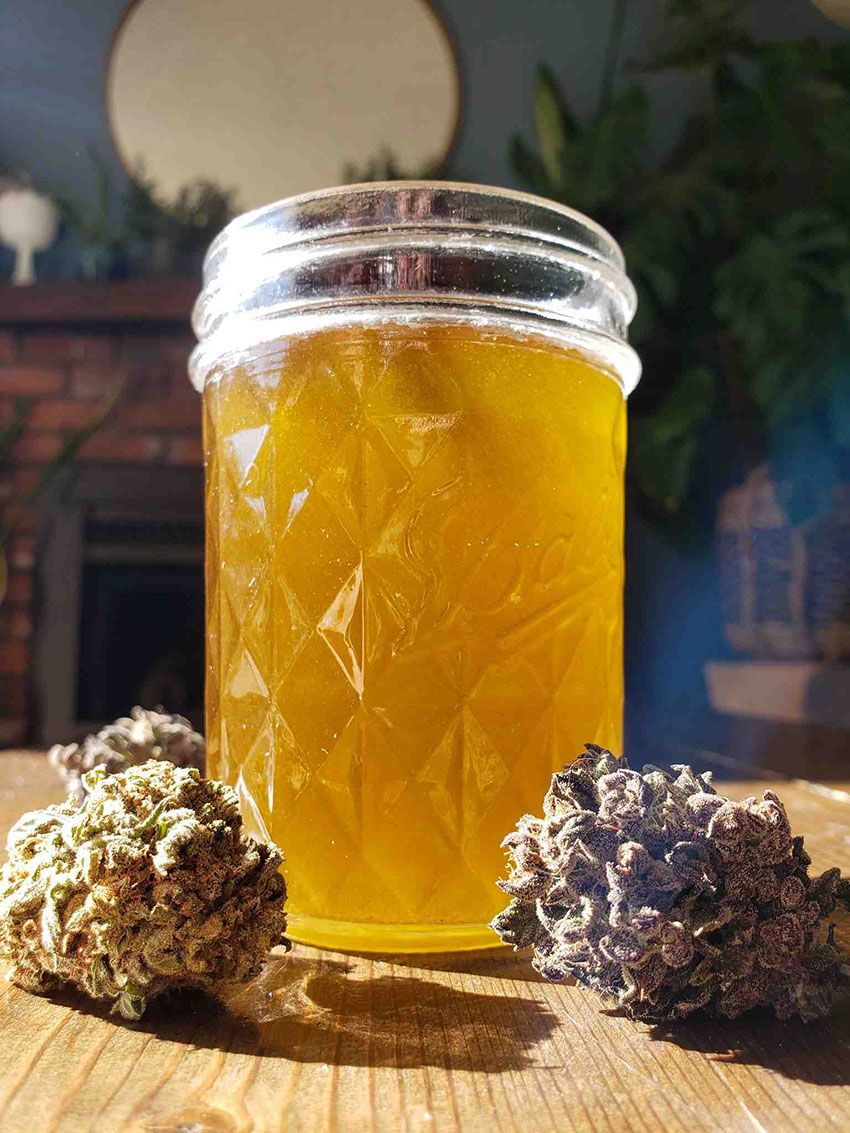
Cannabis concentrates have taken the medical cannabis industry by storm in recent years, and it’s not hard to see why. When compared to traditional flower, medicinal concentrates require patients to consume much less product to experience the unique benefits of cannabis. Plus, you can indulge in concentrates in a number of different ways. Some cannabis concentrates can be smoked like traditional flower, or vaporized for a smokeless experience, or even ingested as a liquid tincture, or oral capsule! But what is a cannabis concentrate exactly?
In this first installment of our two-part guide, we will outline the fundamentals of cannabis concentrates including a variety of methods that are commonly used to make them. Part two of this guide will take a deeper dive into different types of cannabis concentrates and provide expert insight on how to choose the best one for you.
Concentrates, extracts, and oils are all products derived from the cannabis flower and processed into the most concentrated form of the plant’s most active ingredients: terpenes and cannabinoids (THC, THCA, CBD, etc.).
The way a concentrate is extracted determines the type of cannabis product that is made (i.e. an oil, tincture, etc), as well as how it can be consumed.
Despite there being such a wide variety, medicinal concentrates can be split into two primary groups: solvent-based concentrates and solventless concentrates.
Solvent-based extractions use a chemical compound to dissolve the plant material, leaving the cannabinoids and terpenes behind. The solution is then slowly heated to remove the chemical solvent, leaving the extract that can be formed into the cannabis concentrate product of choice.
This extraction method should only be attempted by professional extractors in a controlled environment due to the danger of explosion from the flammable solvents used.
BHO and PHO are considered the most common solvent-based extraction methods by far. Both butane and propane are readily available and are utilized in relatively similar ways. These solvent-based methods work by stripping the flower of cannabinoids and terpenes and then purging them from the resulting concentrate. Butane hash requires a higher boiling point and typically results in a shatter or glass-like concentrate. While propane hash has a much lower boiling point and typically yields a much softer and buddery concentrate.
One of the oldest extraction techniques uses alcohol, like Ethanol as a solvent. Ethanol Hash Oils such as Rick Simpson Oil (RSO) is created by briefly soaking the cannabis flower in pure ethanol alcohol at low temperatures to extract the cannabinoids and terpenes.
The CO2 extraction method is most commonly used to create oil for cannabis vape cartridges and is produced using carbon dioxide at a high temperature. This method is extremely complicated and requires high-end equipment to ensure its purity, making the method more common in commercial cannabis production.
The trichome is the hairlike particles you see all over the bud of the cannabis flower and it is responsible for producing and storing all of the flower’s terpenes and cannabinoids. Solventless extractions use natural methods such as pressure, filtration, and temperature to strip the trichome from the cannabis plant.
This method is fairly new to the cannabis concentrate scene but is a rather simple technique. Bubble Hash, or cold water hash is made by soaking the flower in ice water to make the trichomes brittle and easier to gently shake free from the bud. The trichomes then pass through a filter that collects the remaining material leaving you with a cannabinoid and terpene-rich hash that generally melts – or “bubbles”- when consumed.
Kief is created by a very simple dry sift technique that involves passing cold cannabis flower across a fine screen to separate the trichomes from the bud. Once the trichomes are separated from the flower, it is now kief and resembles a fluffy sand material – imaging the bottom of your grinder – it’s the same thing.
Rosin has quickly gained a lot of popularity in the medicinal concentrate world, and for good reason. Rosin is favored so highly because of the high amount of terpenes and cannabinoids that are preserved during extraction. Rosin can be created from almost any cannabis material including kief, bubble hash, or flower by simply using precise heat and pressure to press out a pure, clean cannabis concentrate.
At Abide, our goal is to help all our patients find relief through medicinal cannabis in a form they are most comfortable with. Our cannabis sommeliers are here to provide personalized recommendations on cannabis concentrates to suit your individual needs.
Visit our new cannabis dispensary in downtown Napa to meet our expert team, and allow them to lead you through our selection of premium medical cannabis concentrates. Or order your favorite products online for curbside pick-up or same-day local delivery!

Open Daily: 9am - 8pm






ACKNOWLEDGMENT OF CALIFORNIA LAW. You expressly acknowledge that Abide services are for qualified patients under California Health & Safety Code Section 11362.5, 11362.7, et seq., and a physician has recommended the use of medical marijuana. You also expressly acknowledge that the use, possession, cultivation, transportation and distribution of cannabis is illegal in California unless all participants are acting completely within the scope of California’s medical cannabis laws as set forth in the Attorney General’s Guidelines for the Security and Non-Diversion of Marijuana Grown for Medical Use and the Medical Cannabis Regulation & Safety Act (consisting of AB243, AB266 and SB643) and any amendments thereto.